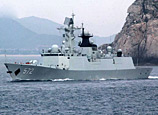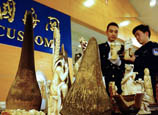
 |
| Professor John Kirton |
This year offers an attractive opportunity for Chinese leadership in global governance, for the benefit of both China and the broader world. The opportunity arises at the forthcoming summits of two new, informal, restricted membership international institutions of leading powers in which China has a central place. The first is the BRICS of Brazil, Russia, India, China and South Africa, whose fifth summit takes place in Durban, South Africa, on March 26-27th. The second is the Group of Twenty (G20) whose eighth summit takes place in St. Petersburg, Russia, on September 5-6.
In both bodies China is a founding member with a fully equal institutional place, a rank as the second most powerful member and an influence that few can match and none can ignore. Indeed, neither body would exist today if China had not seen them from the start as useful clubs for shaping a new world order to protect itself and the global community in the intensely interconnected, complex, uncertain, twenty-first century world.
The BRICS and the Durban Summit
In the BRICS China is the primus inter pares power. It wields more relative capability in gross domestic product (GDP), population, territory and foreign exchange reserves than any other member and does so to a substantial or overwhelming degree. It alone can ensure the success of the prospective new BRICS development bank. This was an initiative from India at the last BRICS summit it hosted in Delhi in March 2012, and is the one that will be the centrepiece achievement of the Durban Summit and determine the success or failure of that summit as a whole. China alone has the financial capacity in its foreign exchange reserves or elsewhere to determine if the BRICS bank will be launched with sufficient capital to make a major difference in a world dominated by the established, western-controlled, now underfunded World Bank in Washington and many regional development banks around the world. China can thus lead the BRICS development bank and the BRICS as a whole away from being a closed, inward-looking club designed to benefit only its members, into an outward-looking one oriented to assisting developing countries, which have long been China’s colleagues in the Group of 77 and other forums.
China’s privileged material position similarly positions it for leadership on the other key issues the Durban Summit will address. These include moving toward new regimes for currency swaps and financial safety nets, stock exchange integration and currency clearing in the international trade among the BRICS countries themselves. It also embraces cooperation among BRICS countries on customs clearing, to facilitate trade and counter the exchange of drugs and other harmful things.

















 Migrant families must leave as container 'village' unlawful
Migrant families must leave as container 'village' unlawful


![]()
